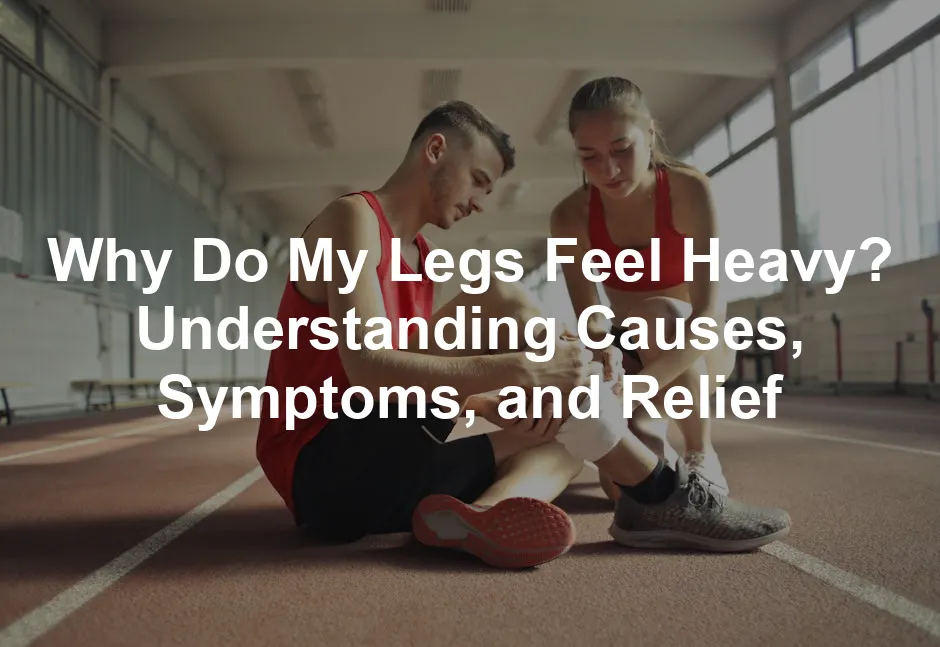
Why Do My Legs Feel Heavy? Understanding Causes, Symptoms, and Relief
Introduction
In today’s fast-paced world, many of us are all too familiar with that nagging sensation of heavy legs after a long day at work or an intense workout. It feels like you’re dragging around a pair of lead weights, making even the simplest tasks a chore. But have you ever paused to wonder why your legs feel this way?
Heavy legs can be a common occurrence, especially if you’ve been on your feet all day or sitting for extended periods. The feeling is often uncomfortable and can even be concerning. It might feel like your legs are playing a cruel joke on you, right when you just want to kick back and relax.
Various factors contribute to this sensation, ranging from simple fatigue to more serious conditions like venous insufficiency or varicose veins. But let’s not jump to conclusions just yet! Knowing the underlying causes of heavy legs can help in finding the right relief.
Poor circulation can lead to blood pooling in the legs, causing that unwelcome heaviness. Think of your veins as a highway: when traffic jams occur, everything slows down. This can happen due to blood vessel issues, muscle fatigue, or even lifestyle choices.
Understanding these causes is vital. They can range from benign issues like overexertion to more serious conditions like Peripheral Artery Disease (PAD). Symptoms often include swelling, aching, and a general feeling of fatigue in the legs.

So, what can you do about it? Luckily, there’s plenty of information and practical advice out there to help you alleviate that lead weight off your legs. From simple lifestyle changes to medical treatments, we’ll explore various strategies to get you back on your feet—light and sprightly!
By the end of this blog post, you’ll be armed with knowledge and practical tips to alleviate that unwelcome heaviness. So, let’s dive right in and lift the weight off those legs!
Common Symptoms
Heavy legs can feel like you’re dragging around a sack of potatoes. It’s not a fun experience, and it’s often accompanied by a range of other symptoms. Swelling is one of the most common complaints. This can cause your legs to look puffy and feel tight. Cramping is another unwelcome sensation. Imagine that awful moment when your leg decides to stage a rebellion during your favorite Netflix binge. Fatigue often joins the party, making your legs feel like they’ve run a marathon, even when you’ve only walked to the fridge.
But wait, there’s more! If your heavy legs come with additional symptoms like skin discoloration, slow-healing sores, or a tingling sensation, it might be time to pay attention. These could indicate more serious conditions like chronic venous insufficiency or peripheral artery disease. Don’t ignore these signs—your legs are sending you an SOS!

Causes of Heavy Legs
Poor Circulation
Let’s talk about blood flow, or rather, the lack of it. Poor circulation can make your legs feel heavy and tired. When blood struggles to move from your legs back to your heart, it can pool in your veins. This can happen due to a variety of conditions, such as peripheral artery disease (PAD). PAD occurs when fatty deposits narrow your arteries, limiting blood flow.
Imagine trying to squeeze a watermelon through a garden hose. That’s akin to what happens in your legs when blood circulation is compromised. Symptoms of PAD include cramping, weakness, and that pesky heavy feeling, especially when walking. If you find yourself out of breath after a stroll to the mailbox, it may be time for a check-up.
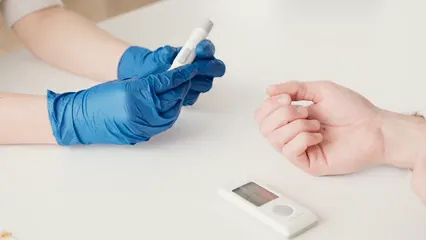
To enhance your circulation, consider using compression stockings. They gently squeeze your legs to encourage blood flow back to the heart. It’s like giving your veins a pep talk!
Venous Insufficiency
Now, let’s tackle venous insufficiency. This condition occurs when your veins can’t pump enough blood back to your heart. Picture your veins as a series of one-way streets. When the valves in these streets fail, blood can flow backward and pool in your legs, leading to swelling and heaviness.
Symptoms of venous insufficiency include achy legs, swelling, and the appearance of varicose veins. Varicose veins are not just an eyesore; they can be quite uncomfortable. They occur when your veins become enlarged and twisted due to prolonged pressure. If you’ve got a job that keeps you on your feet or sitting for hours, you might be at risk.
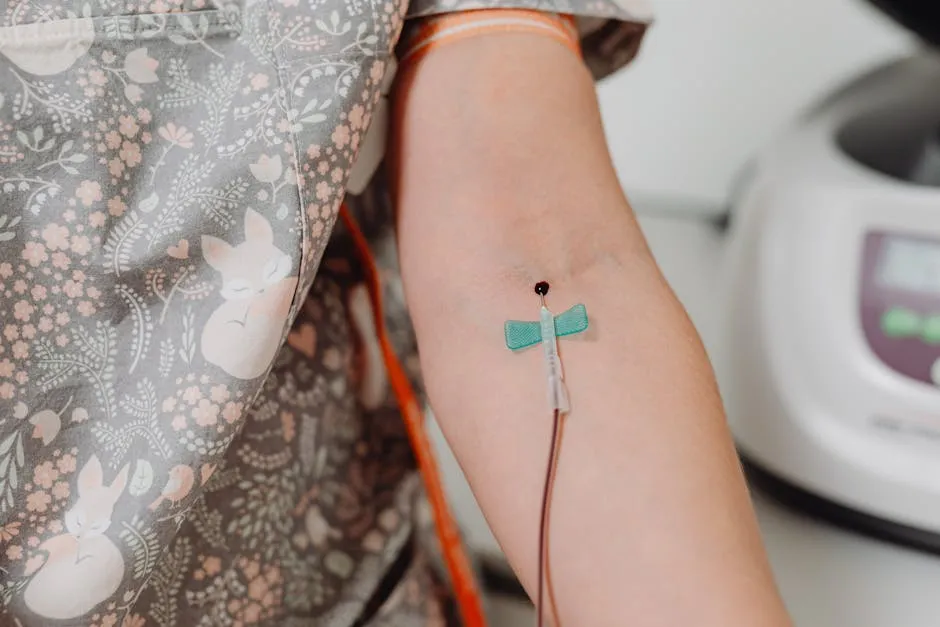
Varicose Veins
Speaking of varicose veins, let’s dive deeper. Varicose veins are those bulging, twisted veins that can appear on your legs. They happen when veins lose their elasticity, allowing blood to pool. Risk factors include age, pregnancy, obesity, and genetics. If your family tree has a history of varicose veins, you might want to keep an eye on your legs.
But it’s not just about aesthetics. Varicose veins can lead to more serious issues if left untreated. They can cause aching, swelling, and a feeling of heaviness in the legs. So, if you notice those pesky veins creeping up, don’t shrug it off. Early intervention can help you tackle this issue before it escalates into a bigger health concern.

In summary, heavy legs can stem from several underlying causes, ranging from poor circulation to venous insufficiency and varicose veins. Understanding these causes is crucial for finding the right treatment and relief. If you’re experiencing heavy legs, don’t hesitate to consult a healthcare professional. Your legs deserve to feel light and free!
Overuse and Muscle Fatigue
Ever felt like your legs are carrying a boulder after a vigorous workout or a long day at the office? You’re not alone! Overdoing it at the gym or simply standing for hours can lead to muscle fatigue, causing that dreaded heaviness.
When you exercise excessively, your muscles experience tiny tears. This is normal, but too much strain can prevent proper recovery. Your legs might scream at you, feeling heavy and tired, just when you need them the most.
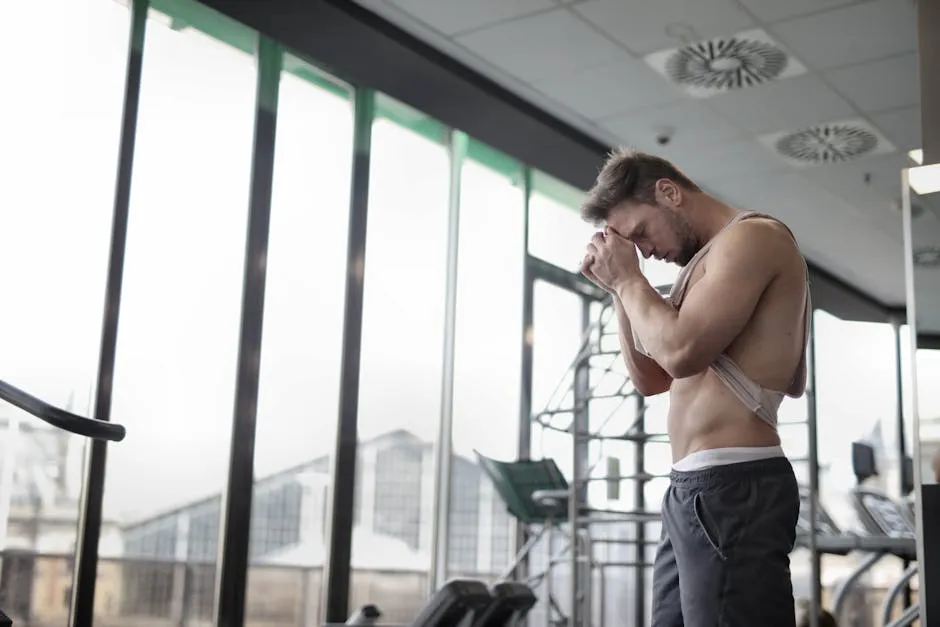
To keep those legs light and lively, consider these tips:
- Take Breaks: If you’re standing or sitting for long periods, don’t forget to take breaks. Stand up, stretch, or take a quick walk. Your legs will thank you!
- Hydration is Key: Drink plenty of water. Dehydration can worsen muscle fatigue. A well-hydrated body performs better! You might want to check out this fantastic water bottle that keeps your hydration game strong.
- Warm Up and Cool Down: Before workouts, warm up those muscles. After exercising, cool down properly to aid recovery.
- Listen to Your Body: If your legs feel heavy, maybe it’s time for a rest day. Pushing through fatigue can lead to injuries.

Restless Leg Syndrome (RLS)
Now, let’s talk about a quirky condition that keeps many awake at night: Restless Leg Syndrome (RLS). Imagine lying in bed, feeling an irresistible urge to move your legs. Sounds familiar? This can create a heavy sensation in your legs that’s hard to shake off.
RLS often strikes when you’re resting, making it difficult to unwind for the night. The sensations can range from creeping to crawling feelings, and they’re often relieved by movement.
Several risk factors may contribute to RLS, including:
- Age: It’s more common as we get older.
- Lifestyle Choices: Smoking and excessive alcohol can exacerbate symptoms.
- Pregnancy: Hormonal changes during pregnancy can trigger RLS.
- Family History: Genetics may play a role, so if RLS runs in the family, you might be more prone.

Other Medical Conditions
Heavy legs can also be a symptom of various medical conditions. It’s like your body is sending out an SOS signal! Here are a few culprits to consider:
- Diabetes: High blood sugar can damage blood vessels, leading to circulation issues.
- Obesity: Carrying extra weight places added pressure on your legs, making them feel heavy.
- Pregnancy: The joy of expecting can come with the challenge of heavy legs due to increased blood volume and pressure.

These conditions can complicate circulation, leading to that uncomfortable heaviness. If you suspect a more serious issue, it’s best to consult with a healthcare professional. Your legs deserve the best care!
At-home Remedies and Lifestyle Changes
Lifestyle Adjustments
Feeling like your legs are made of lead? Well, it might be time for some lifestyle tweaks! Regular exercise can make a world of difference. Activities like walking, swimming, and cycling are fantastic. They help stimulate circulation and strengthen the muscles in your legs. Think of them as your legs’ personal cheerleaders!

Walking is super easy and can be done anywhere—just lace up those sneakers and hit the pavement! Swimming is like a full-body hug for your legs; it reduces pressure while promoting blood flow. Cycling? It’s not just for Tour de France contenders. It’s a great low-impact way to keep your legs in tip-top shape.
Don’t forget about your diet! Staying hydrated is key. Water helps maintain blood volume, ensuring that your legs don’t feel like they are stuck in molasses. Reducing sodium intake is also vital. Too much salt can lead to fluid retention, which is the last thing you need. So, sip that water and keep the salt shaker at bay!
Wearing Compression Stockings
Have you ever considered the magic of compression stockings? They might just be your new best friend! These specially designed garments apply gentle pressure to your legs. This helps blood flow back to your heart more efficiently.
Compression therapy can significantly alleviate that heavy sensation. It’s especially beneficial for those who spend long hours sitting or standing. Slip on those stockings, and you may feel like you’re walking on air. Talk about a win-win for comfort and style!
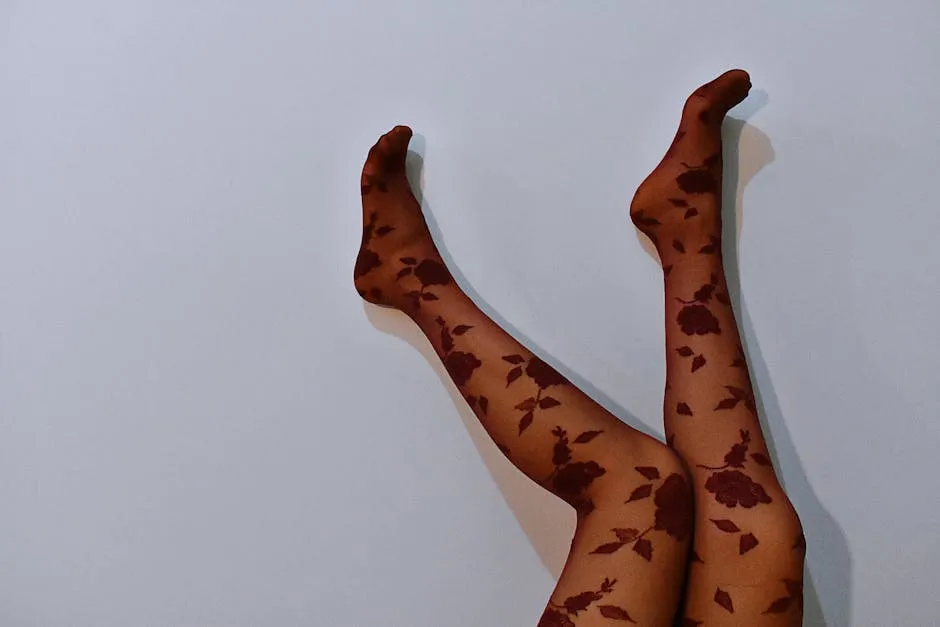
Additionally, consider investing in a leg massager to pamper those tired legs after a long day.
Medical Treatments
When to Consult a Doctor
Now, let’s get serious for a moment. If your legs feel heavy and it’s not just after a long day, it might be time to consult a healthcare professional. There are certain signs to watch for. If you experience persistent heaviness, swelling that doesn’t go down, or cramping, don’t ignore it.
Skin changes, like discoloration or sores that heal slowly, can indicate underlying issues. These symptoms could be your legs waving a red flag, signaling that it’s time to seek medical advice. After all, your legs deserve the best care!
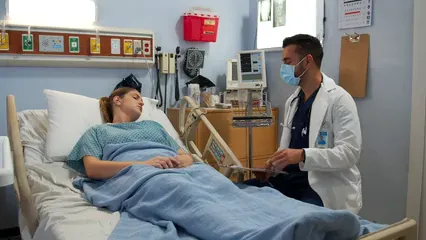
Treatment Options
If your doctor finds a cause for the heaviness, there are various treatment options available. For example, sclerotherapy is a popular choice for treating varicose veins. In this procedure, a solution is injected into the affected veins, causing them to close off. Out of sight, out of mind!
Endovenous laser therapy is another effective treatment. It uses heat from a laser to seal the problematic veins. Both methods aim to improve blood flow and reduce that pesky heaviness. Your doctor may also recommend lifestyle modifications that complement medical treatments.
Seeking Specialist Help
In some cases, consulting a vein specialist is crucial. If you’re experiencing chronic symptoms, these professionals have the expertise to diagnose and treat vascular conditions effectively. They can provide tailored treatment plans specific to your needs.
Don’t hesitate to reach out for help! Your legs shouldn’t feel like they’re dragging through quicksand. With the right guidance and treatment, you can reclaim that lightness and vitality. So, take a step in the right direction and consult a specialist when needed!

Conclusion
Heavy legs can significantly impact your quality of life. That sluggish feeling can turn simple errands into Herculean tasks. But understanding the causes and symptoms can empower you to seek appropriate relief. Not all hope is lost! Whether it’s through lifestyle changes, home remedies, or medical treatments, there are numerous pathways to alleviate that burdensome feeling.
You might be surprised to learn that something as simple as elevating your legs or incorporating light exercise can work wonders. Gentle stretches, daily walks, and staying hydrated are excellent starting points. Also, consider wearing compression stockings. They may feel like a superhero cape for your legs, helping to boost circulation and reduce discomfort.

If you suspect your heavy legs stem from a more serious issue, don’t hesitate to consult a healthcare professional. It’s essential to rule out serious conditions like venous insufficiency or peripheral artery disease. Your legs deserve to feel light and agile, so don’t hesitate to take action!
Remember, you’re not alone in this struggle. Many experience heavy legs, but armed with the right knowledge, you can tackle it head-on. Be proactive about your leg health. Seek help, make the necessary changes, and reclaim that bounce in your step. After all, life is too short to be weighed down by leaden legs!
FAQs
What can I do to relieve heavy legs quickly?
If your legs feel like they’ve run a marathon, try elevating them. Raise those legs above heart level for 15 to 20 minutes. It’s like giving them a mini vacation! Gentle exercises, such as ankle pumps or walking, can also stimulate circulation. Plus, a refreshing leg massage might just feel like heaven.
Are heavy legs a sign of a serious condition?
Sometimes, yes! If your legs feel heavy consistently, accompanied by swelling or pain, it may indicate a more serious issue. Conditions like venous insufficiency or peripheral artery disease could be at play. If symptoms persist, consult a healthcare professional to ensure everything’s okay down there.
How can I prevent heavy legs in the future?
Prevention is key! Regular exercise, such as walking or swimming, can help maintain healthy legs. Staying hydrated and reducing salt intake can also combat fluid retention. Incorporate breaks into your routine if you sit or stand for long periods, and consider wearing compression stockings during long trips.
Can diet affect the heaviness of my legs?
Absolutely! A well-balanced diet plays a crucial role in circulatory health. Hydration is vital—dehydration can worsen leg heaviness. Eating potassium-rich foods, like bananas and sweet potatoes, may help prevent cramps and support healthy muscle function.
When should I see a doctor for heavy legs?
If your legs feel heavy regularly or if you notice swelling, skin discoloration, or persistent pain, it’s time to see a doctor. Early intervention can prevent further complications. Don’t ignore the signs; your legs are talking, and they need your attention!
Please let us know what you think about our content by leaving a comment down below!
Thank you for reading till here 🙂
All images from Pexels




